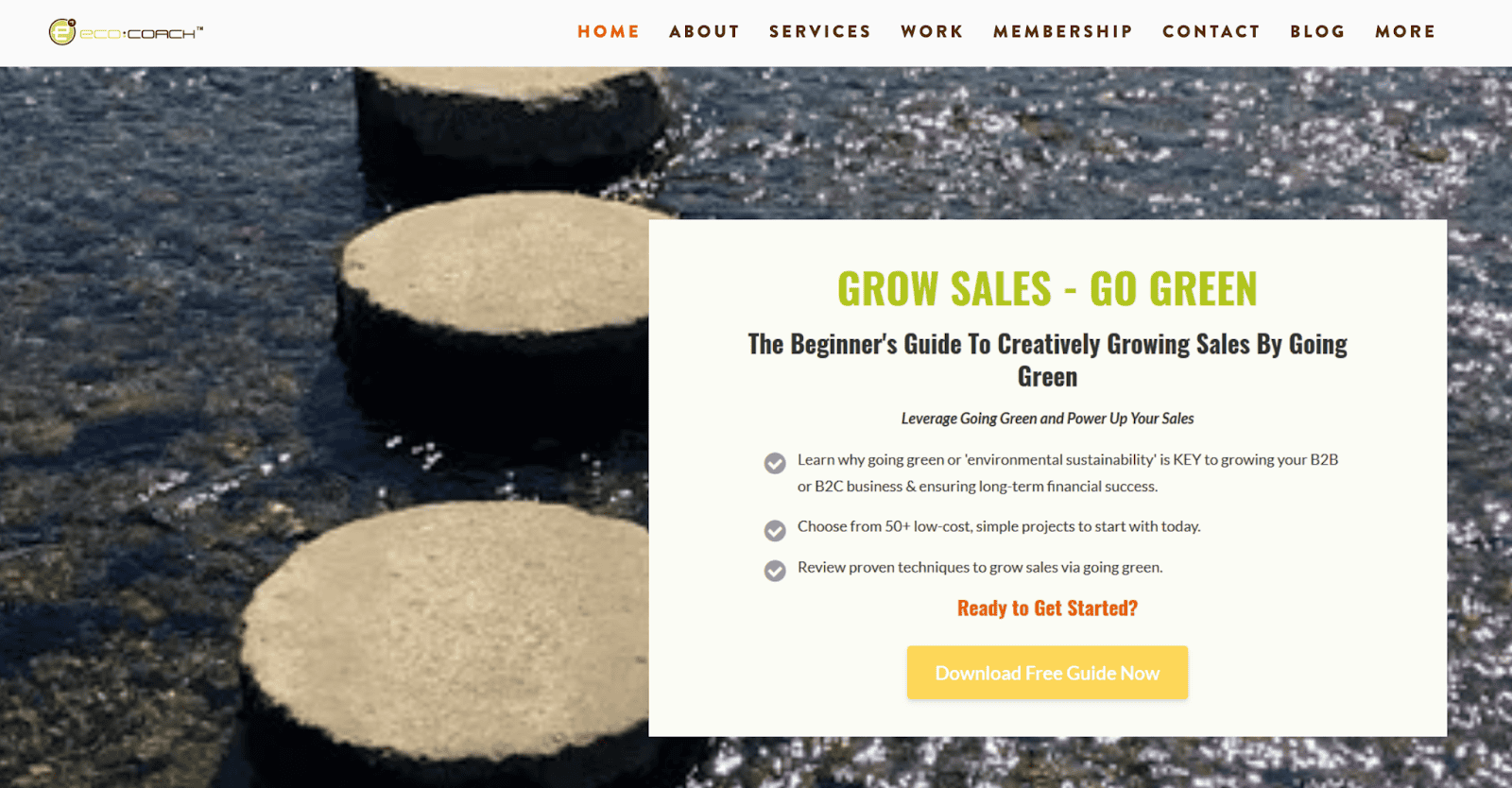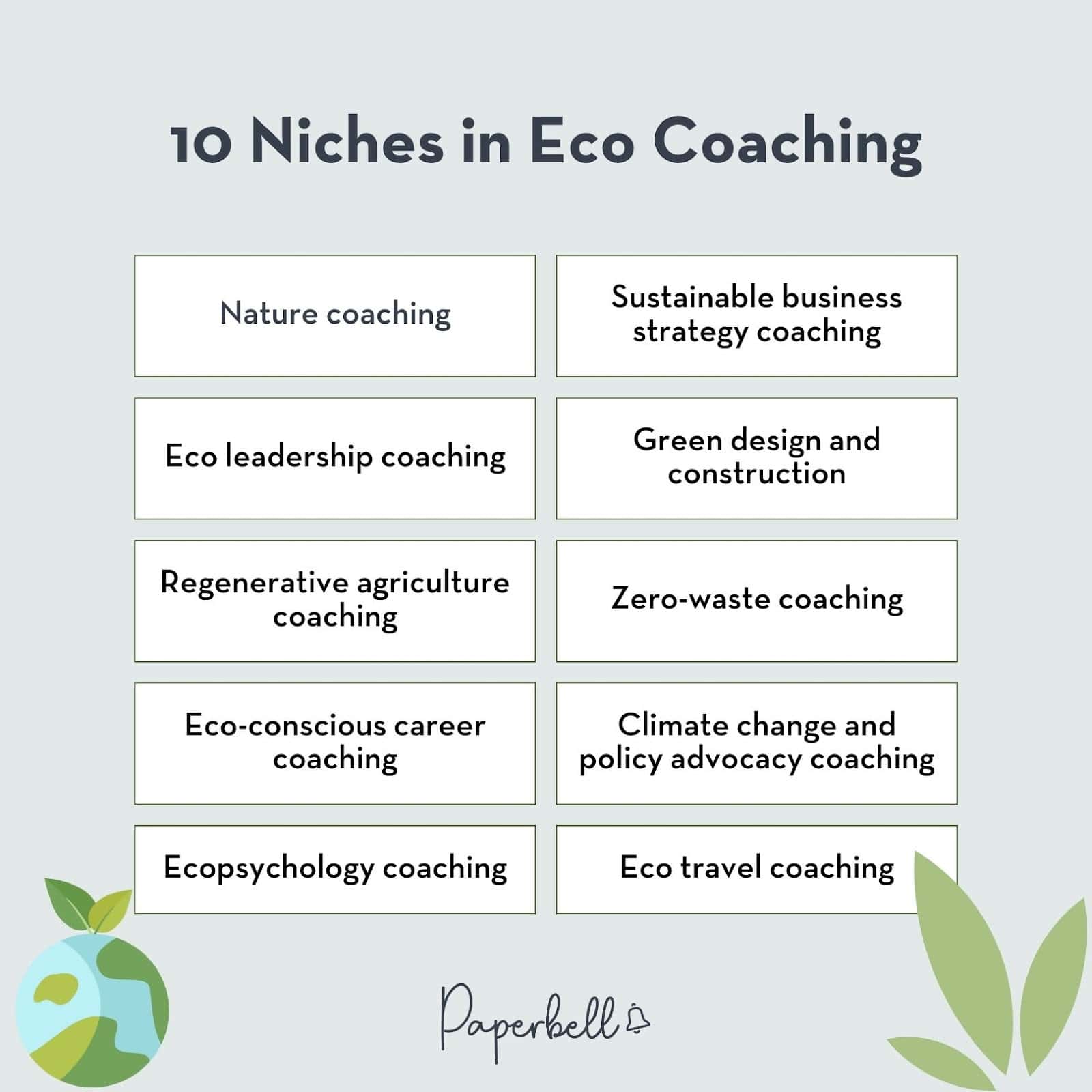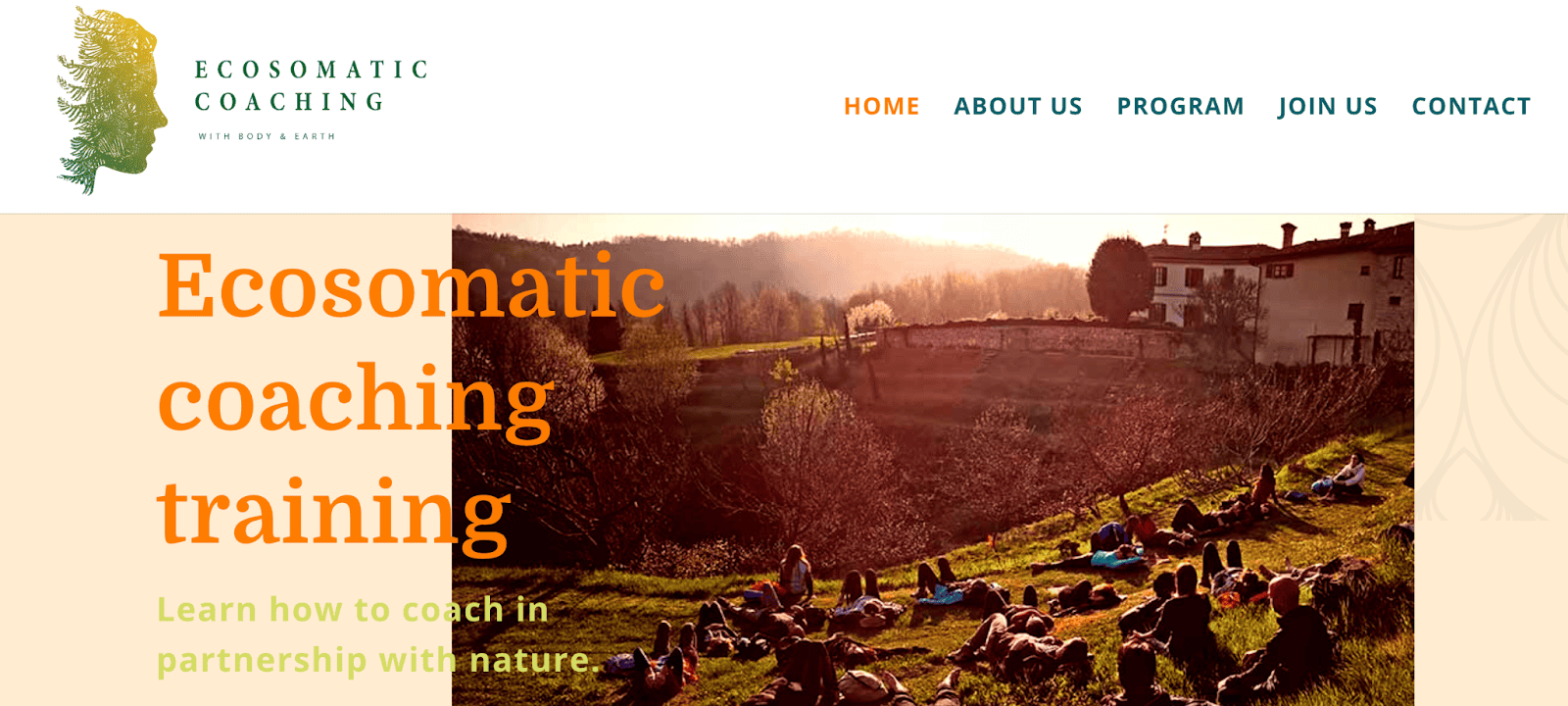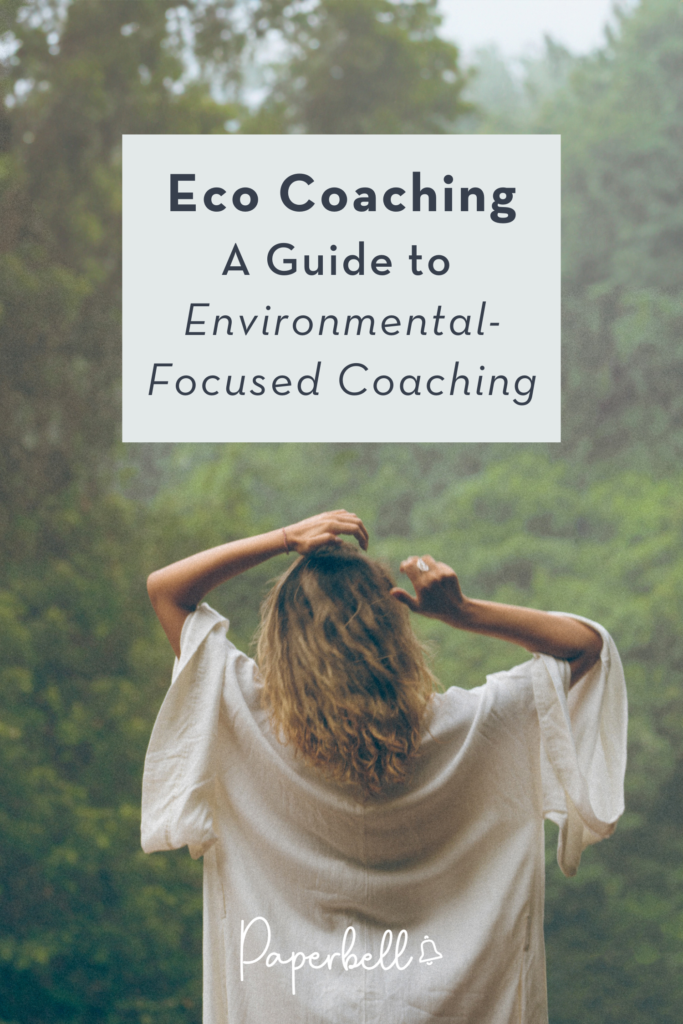As climate change and environmental concerns continue to dominate the global conversation, the need for eco coaching is increasing. Consumers expect eco-friendly products and services, and businesses prioritize sustainability to stand out in crowded markets.
With this unique specialization, you can guide clients toward more sustainable lifestyles and help businesses improve long-term sustainability.
Let’s explore what this much-needed coaching niche entails and how you can start a career in it, from getting certified to marketing your services.
What Is Eco Coaching?
Eco coaching integrates environmental awareness with personal and organizational development. It helps clients develop a more sustainable and eco-friendly mindset, lifestyle, and organizational strategy.
As a result, they can live in greater harmony with nature, understand how their actions impact the broader ecological system, and take actions to reduce their environmental footprints.
This niche goes beyond the coaching profession; it’s part of a larger global movement toward sustainability, which is quickly gaining traction across various industries. As climate change, deforestation, and pollution continue to impact the world, many individuals and businesses are looking for guidance on how they can contribute to positive environmental change.
By positioning yourself as an eco coach, you’re joining an important and rapidly growing sector that provides real solutions to global problems. It’s an opportunity to be part of a transformative shift towards eco-conscious living and business practices.
The Key Components of Eco Coaching
Eco coaches typically focus on:
- Environmental awareness: Educating clients on sustainability and encouraging them to consider the long-term impact of their choices on the planet.
- Sustainable decision-making frameworks: Helping clients evaluate purchases, business strategies, or lifestyle choices.
- Balancing objectives with environmental impact: Helping clients meet their personal or business needs without compromising the planet’s health.
- Measuring ecological impact: Helping clients assess energy usage, carbon footprints, or waste production, and offer guidance on how to reduce these impacts over time.
Who Needs Eco Coaching?
The burning need to address climate change and environmental damage is creating a growing demand for eco-conscious decisions on both personal and organizational levels. Here’s a closer look at who you could serve as an eco coach.
Individuals Looking for Sustainable Lifestyle Changes
More and more people are concerned about their personal environmental impact through their energy consumption, waste production, and consumption habits. Eco coaching helps them live a more eco-friendly lifestyle and integrate sustainability into their daily routines.

For example, Karen Richards works closely with her clients to integrate eco-conscious habits into their everyday lives. She guides them toward informed decisions that reduce their ecological footprint while cultivating a mindset of environmental responsibility.
Business Leaders and Entrepreneurs
Businesses are also under increasing pressure to become more sustainable. Customers expect transparency about how products are made and the environmental impact of operations. Eco coaches can assist businesses in evaluating their sustainability practices, setting long-term goals, and identifying areas for improvement.

For example, Eco-Coach helps businesses assess their operations, designs tailored sustainability strategies for them, and assists them with implementation. This allows them to
reduce their ecological footprint while boosting customer satisfaction.
Non-Profit Organizations
Many nonprofits and public sector entities are dedicated to promoting sustainability, conservation, and environmental advocacy. Eco coaches can assist these organizations by helping them refine their sustainability strategies and improve internal operations.
These organizations often require guidance on stakeholder engagement, reporting sustainability metrics, and creating measurable impact. Many also explore eco-friendly fundraising ideas that align with their sustainability goals and help boost donor engagement.
Environmental Activists and Advocates
Eco coaches can also serve clients involved in environmental activism and advocacy.
They may need support in clarifying their roles in the larger sustainability movement, setting measurable goals, and managing the emotional stress that often accompanies the work in this field.
Eco coaches offer space for these individuals to process challenges, re-energize their efforts, and ensure they’re working in a way that aligns with their ecological values.
10 Niches in Eco Coaching
The more specialized you are, the easier it will be to create tangible results with your coaching. Here are a few topics you can focus on within this niche:
- Nature coaching: Using nature-based experiences and the outdoors to help individuals reconnect with the environment.
- Eco leadership coaching: Guiding leaders to integrate sustainability into their team strategy and the departments they are heading.
- Regenerative agriculture coaching: Helping farmers and landowners transition to regenerative agricultural practices that focus on improving soil health, biodiversity, and ecosystem restoration.
- Eco-conscious career coaching: Helping individuals transition into careers in the green industry or align their careers with environmental values.
- Ecopsychology coaching: Addressing the emotional and psychological connection between humans and the environment, such as eco-anxiety and environmental grief.
- Sustainable business strategy coaching: Assisting entrepreneurs in creating eco-friendly business strategies and operations.
- Green design and construction: Creating eco-friendly homes and buildings using sustainable materials and energy-efficient practices.
- Zero-waste coaching: Helping individuals, families, and businesses adopt a zero-waste lifestyle by reducing packaging, reusing materials, and minimizing landfill waste.
- Climate change and policy advocacy coaching: Assisting clients involved in environmental advocacy and policy change related to climate action.
- Eco travel coaching: Guiding individuals or businesses to make sustainable travel choices.

How Do I Become an Eco Coach?
If you’re passionate about sustainability and coaching, this could be the perfect specialty for you. Here’s how you can get started.
1. Get Specialized Training
Specialized coaches typically take two different routes. Some acquire foundational coaching training in addition to education related to their coaching specialty. Others take a combined coaching certification program tailored to their niche.

For example, these programs combine core coaching competencies based on the standards of the International Coaching Federation (ICF) with eco coaching modules:
If you want to pursue further environmental training without coaching modules, you may look into the following:
- Ecopsychology: How our mental and emotional connections to the environment affect our behavior.
- Organizational sustainability: Certifications in sustainability, such as the Sustainability Excellence Associate (SEA) certification or training in Corporate Social Responsibility (CSR).
- Environmental science: Understanding the science behind climate change and basic ecological principles.
2. Start a Coaching Practice
To start working with clients, you need to establish a coaching business. Here’s how to get started.
- Define your niche: Will you focus on personal sustainability or business practices? Define a specific target audience you plan to market your services to.
- Design your packages: Outline what you offer, your coaching process, your fees, and what clients can achieve working with you.
- Set up a professional website: Paperbell helps you set up a coaching website that handles scheduling, payments, contracting, and everything else you need to manage clients.
- Build your network: Attend environmental and coaching conferences, join online communities, and seek out mentorship to connect with other eco coaches and potential clients.
- Market your services online: Choose one or two marketing strategies to kickstart your business and build up a consistent flow of clients over time.
- Offer workshops and webinars: Consider organizing free events to attract clients and educate your audience about the importance of eco-conscious living.
3. Measure Your Coaching Impact
As you begin coaching, work with clients to set measurable sustainability goals. Offer eco-friendly resources and practical strategies while checking in on their progress regularly.
Sustainability assessments and carbon footprint calculators can help you track client progress. This lets you evaluate your services’ effectiveness and create case studies that demonstrate the measurable impact your work achieves.
Ready to Make a Difference?
Eco coaching can be a meaningful career path that allows you to help clients thrive while protecting the planet. To give them the best experience, it’s important to keep your coaching practice organized and your communication smooth.
Paperbell can help you set up your packages, coaching website, booking, and payment systems with a few clicks. It also automates your client onboarding flow and communication so you can focus your energy on making an impact on lives and businesses.
Try Paperbell for free with your first client.










